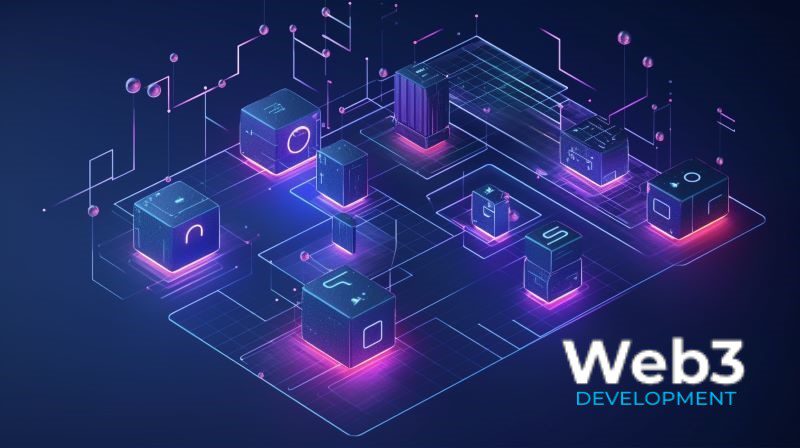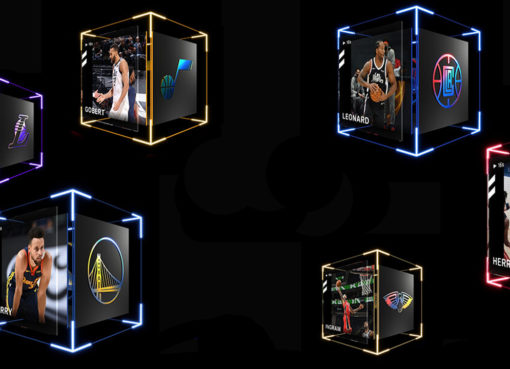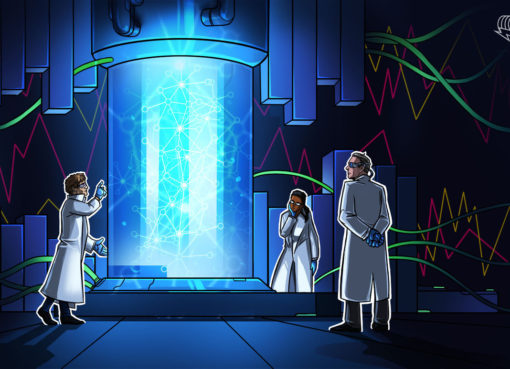Welcome to the world of Web3 Development – a realm where the future of internet technology is evolving, transforming how we interact on a digital platform. If you’ve ever found yourself curious about the technologies driving the next generation of the internet, then strap in, because this insightful guide is your passport to a new digital frontier. Perfectly curated for beginners, we will embark on a journey to demystify blockchain, cryptocurrencies, decentralized networks, and much more. Get ready to unmask the enigmatic world of Web3 Development, where you are not just a user, but also a to the digital ecosystem. It’s time to embrace the future and become a part of the revolution. Let’s dive in!
What does web3 mean?
Web3, short for Web 3.0, is often referred to as the new generation of the internet. It’s a technological evolution that aims to create a decentralized and intelligent internet powered by blockchain technology and artificial intelligence.
Unlike its predecessors (Web1 and Web2), Web3 fosters the concept of a user-centric online space, where users have full control over their data This transformative model will enable peer-to-peer interactions without the need for intermediaries, such as large corporations or banks.
In simple terms, Web3 is a vision for a more transparent, secure, and user-empowered digital world. It’s an emerging framework that promotes decentralization, connectivity, privacy, and data ownership. From online payments to content sharing, Web3 is set to revolutionize how we engage with the digital world.
How does web3 platform works?
Web3 platform works by utilizing blockchain technology to provide a more decentralized and secure internet experience. It allows individuals to have more control over their, identity, and transactions.
Web3 platform employs smart contracts, which are self-executing contracts with predefined conditions that automatically execute when these conditions are met. This eliminates the need for intermediaries and increases efficiency.
It also enables the use of decentralized applications (DApps), which are built on top of blockchain networks. DApps are run by smart contracts and are not controlled by any central authority, making them resistant to censorship and single points of failure.
Web3 platform also champions the concept of user sovereignty. It empowers individuals with the ability to own and control their personal data, giving them the freedom to choose how, when, and with whom to share it. This is achieved through the use of cryptographic techniques such as public-private key pairs.
Overall, Web platform revolutionizes the way we interact with the internet by prioritizing privacy, security,
Benefits of web3 development
Web3 development offers several benefits that differentiate it from traditional web development. Here are some key advantages of Web3 development:
- Decentralization: Web3 development leverages blockchain technology to create decentralized applications (dApps). Unlike traditional web applications that rely on a central authority or server, dApps operate on decentralized networks. This decentralization eliminates single points of failure, improves security, and promotes censorship resistance.
- Trust and Transparency: Web3 applications are built on blockchain platforms, which provide a transparent and immutable record of all transactions and activities. This transparency enhances trust among participants as anyone can verify the integrity of the data and the execution of smart contracts. It reduces the need for intermediaries and promotes a more open and accountable system.
- Security: Blockchain-based systems offer robust security mechanisms. The distributed nature of the blockchain network makes it difficult for malicious actors to tamper with or compromise the data stored on the blockchain. The use of cryptographic techniques ensures the integrity and confidentiality of user data, providing enhanced security compared to traditional centralized systems.
- Ownership and Control: Web3 applications enable users to have ownership and control over their data and digital assets. Through the use of decentralized identities and digital wallets, individuals have sole access to their information and can manage their assets without relying on intermediaries. This shift in control empowers users and reduces the risk of data breaches or unauthorized access.
- Interoperability: Web3 development promotes interoperability between different blockchain networks and applications. Developers can leverage standards like ERC-20 (Ethereum), ERC-721 (NFTs), and others to build applications that can interact seamlessly with other compatible systems. This interoperability opens up possibilities for building complex and interconnected ecosystems of dApps.
- Tokenization and Incentives: Web3 development facilitates the creation and use of tokens on blockchain networks. Tokens can represent various assets, such as currencies, digital collectibles, or access rights. These tokens enable new economic models, incentivize user participation, and create vibrant communities around dApps. Tokenization also enables crowdfunding through Initial Coin Offerings (ICOs) or Initial DEX Offerings (IDOs), providing new avenues for fundraising and investment.
- Disintermediation: Web3 development has the potential to disrupt traditional intermediaries in various industries. By removing the need for intermediaries such as banks, marketplaces, or platforms, Web3 applications can enable direct peer-to-peer interactions, reducing costs, eliminating middlemen, and increasing efficiency.
- Global Accessibility: Web3 applications are accessible to anyone with an internet connection, without restrictions imposed by geographical boundaries or traditional financial systems. This inclusivity allows users from all over the world to participate in decentralized networks, access financial services, and engage in global markets.
- Innovation and Experimentation: Web3 development opens up new possibilities for innovation and experimentation. Developers can leverage smart contracts and decentralized protocols to create novel applications, automate processes, and explore emerging technologies like decentralized finance (DeFi), non-fungible tokens (NFTs), and decentralized autonomous organizations (DAOs).
Web3 development is a rapidly evolving field with significant potential to reshape various industries. By embracing the benefits of decentralization, transparency, security, and user empowerment, Web3 applications offer exciting opportunities for individuals, businesses, and communities.
Top Web3 Development Frameworks?
There are several web frameworks that are commonly used in the blockchain industry. These frameworks provide developers with a set of tools and libraries to easily build decentralized applications (dApps) on the blockchain.
- Truffle: Truffle provides a suite of development tools to compile, deploy, and test smart contracts on various blockchain platforms like Ethereum. It also includes built-in support for smart contract testing and debugging.
- Embark. Embark makes it easy to develop, test, and deploy dApps on the Ethereum blockchain. It offers a simple and intuitive interface and supports features like contract deployment, testing, and event monitoring.
- Ganache: It allows developers to test their dApps locally. It creates a local Ethereum network for easy and efficient testing. Ganache also provides a user-friendly interface to inspect and debug smart contracts.
- Hardhat: Hardhat is a powerful development environment for Ethereum that allows developers to compile, test, and deploy smart contracts. It provides a robust development experience with features like built-in task automation, console debugging, and plugin support.
- Brownie: Brownie is a Python-based development framework for Ethereum. It focuses on simplicity and provides a high-level, expressive syntax for writing smart contracts. Brownie also offers powerful testing and deployment features.
- Drizzle: Drizzle is a front-end development framework for building decentralized applications on Ethereum. It provides a Redux-based store to manage state and allows developers to easily interact with smart contracts and blockchain data.
- OpenZeppelin: OpenZeppelin is not a full-fledged development framework but a library of reusable smart contract components. It offers secure and audited implementations of various standard contracts like ERC20, ERC721, and more. OpenZeppelin can be integrated with other development frameworks for building secure dApps.
- Substrate: Substrate is a blockchain development framework by Parity Technologies. It enables developers to build custom blockchain networks and decentralized applications. Substrate is designed to be flexible, modular, and scalable, allowing developers to customize their blockchain’s consensus mechanisms and features.
These are just a few examples of Web3 development frameworks available in the ecosystem. The choice of framework depends on your specific requirements, target blockchain platform, and programming language preferences. It’s important to explore and evaluate different frameworks to find the one that best suits your needs.
How to create web3 business website ?
To create a web3 business website you’d need know few steps:
- Define your business objectives: Determine the purpose and goals of your website. This will guide the overall design and functionality.
- Choose a web3 platform: Look for platforms that support web3 technologies such as blockchain and smart contracts. Examples include Ethereum, Polkadot, and Solana.
- Create a development plan: Determine the scope of your website and create a plan for its development. Consider factors like user experience, security, and scalability.
- Design and develop the website: Hire a web designer and developer who specialize in web3 technologies. Ensure that your website design aligns with your brand identity and appeals to your target audience.
- Implement web3 features: Integrate blockchain technologies into your website, such as decentralized identity, tokenization, and smart contracts. This will enhance data security and add value to your business.
- Test and optimize: Thoroughly test your website for
Where to start web3 development?
Kryptobees is a web3 software development company, it can still be a suitable place to start your Web3 development journey. As a company specializing in web3 development, Kryptobees may offer additional advantages for beginners in this field:
- Expertise and Guidance: Being a specialized web3 software development company, Kryptobees likely has a team of experienced professionals who can provide guidance and support as you navigate the world of Web3 development. Their expertise can be invaluable, especially for beginners looking to learn from industry experts.
- Real-world Projects: Working with a web3 development company like Kryptobees may give you the opportunity to gain practical experience by working on real-world projects. This hands-on experience can help you understand the challenges and intricacies of building decentralized applications and working with blockchain technologies.
- Access to Cutting-edge Tools and Technologies: Web3 development companies often stay up-to-date with the latest tools, frameworks, and technologies in the field. By starting your journey with Kryptobees, you may have access to cutting-edge tools and resources that can accelerate your learning and development process.
- Networking Opportunities: Joining a web3 development company like Kryptobees can expose you to a network of professionals in the industry. This network can provide valuable connections, collaboration opportunities, and mentorship, enabling you to grow your skills and expand your career prospects in the Web3 space.
While Kryptobees may be a suitable place to start your Web3 development journey, it’s still important to complement your learning by exploring other resources, engaging with the broader Web3 community, and continuously expanding your knowledge and skills in this rapidly evolving field.
How it is beneficial to Hire Web3 Developers?
Hiring Web3 developers can be highly beneficial for businesses that wish to leverage the benefits of decentralized technologies. These developers possess a deep understanding of blockchain, smart contracts, and other Web3 protocols, enabling them to build decentralized applications (dApps) that can disrupt traditional industries.
One of the main benefits of hiring Web3 developers is that they bring expertise in blockchain technologies and can help businesses navigate the complexities of this emerging field. With their knowledge, they can develop innovative solutions that can increase security, transparency, and efficiency in various industries.
Additionally, Web3 developers can assist businesses in unlocking new revenue streams by creating dApps that enable peer-to-peer transactions and eliminate intermediaries. This can result in cost savings, increased user engagement, and expanded market reach.
Furthermore, hiring Web3 developers can enhance a company’s competitive advantage by enabling them to stay ahead of the curve in adopting decentralized technologies. As the Web3 ecosystem continues to grow, businesses that are early adopters of these technologies can establish themselves as
Conclusion
In conclusion, Web3 development is an exciting and rapidly growing field that offers numerous opportunities for innovation and disruption. This beginner’s guide has provided an overview of the key concepts and technologies involved in Web3 development.
Web3 development requires a range of skills, including programming, cryptography, and an understanding of distributed systems. It also demands a mindset that embraces the principles of decentralization, transparency, and user ownership of data.
As we move towards a more decentralized web, it is important to stay informed and up-to-date with the latest developments in Web3. Whether you are a developer, a business owner, or an individual interested in the future of the internet, Web3 development company offers immense potential for creating innovative solutions.




